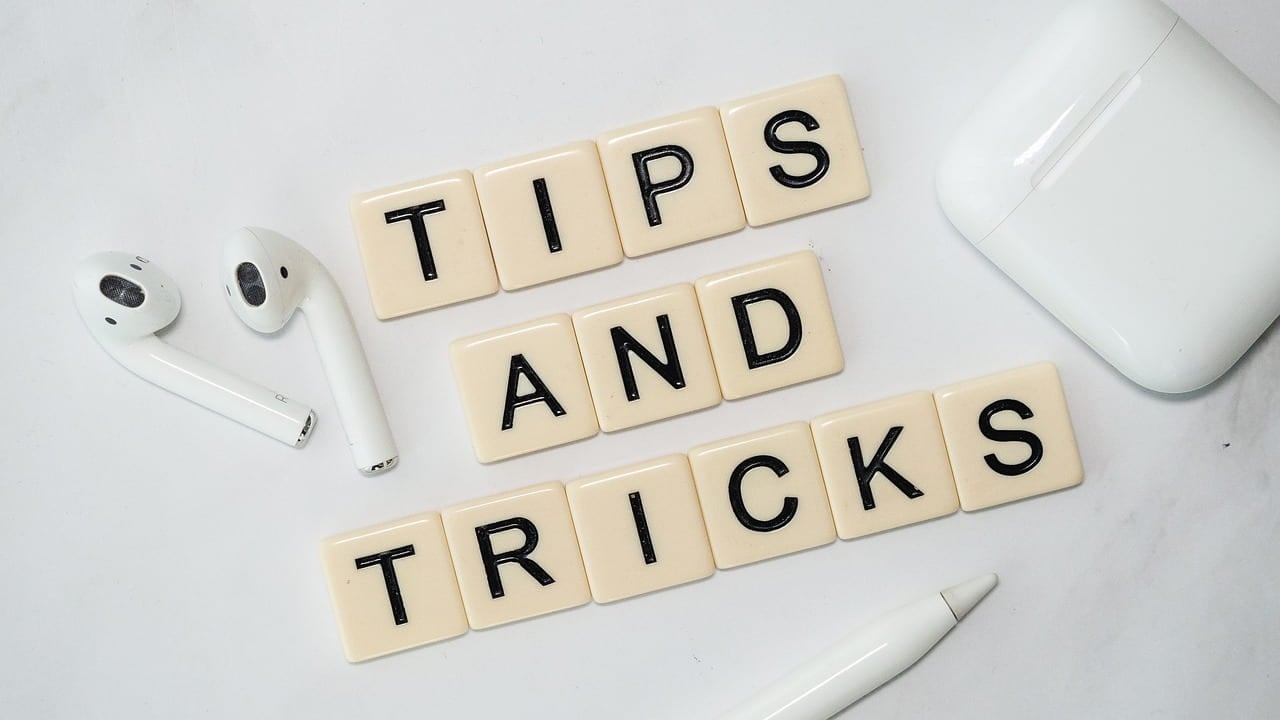Maybe those things you did, while you were in that unfulfilling relationship with someone you weren�t in love with who controlled and manipulated you with guilt, weren�t mistakes after all. Maybe you have little or nothing to feel guilty...

Maybe those things you did, while you were in that unfulfilling relationship with someone you weren�t in love with who controlled and manipulated you with guilt, weren�t mistakes after all. Maybe you have little or nothing to feel guilty about. Even though you are constantly reminded of it; how much you hurt someone and what a terrible person you are because of what you did; maybe it was a divine intervention trying to shake you loose from a destructive cycle that�s wasting your life away. Maybe it was a Universally orchestrated symphony of change, creating higher vibrational connections, love interests, or just interruptions in the cycle; to get your attention, help you see beyond the cycle, and break free from it. Maybe. Just maybe?
Maybe those deeply rooted feelings of guilt you have that grew out of the constant criticism, judgment, or other forms of verbal/emotional abuse in your childhood from a parent are what set you up for feeling this way about yourself and being drawn to someone just like them. Maybe you were attracted to someone like this because it�s so familiar, because you don�t think you deserve anything better, and/or because you are subconsciously trying to�ameliorate your feelings of guilt and shame�from childhood by finding someone similar to the abusive parent and creating a different, more positive outcome (which almost never works, simply because the current person is like the parent and treats you the same way � which reinforces rather than ameliorates the problem). Maybe you couldn�t break free from the cycle, and your partner was working hard to keep you in it, and the Universe threw in a heart-shaped wrench to jar you loose. Maybe. Just maybe?
�The truth is � genuine connection is ease. It is peace. When you find it, you will know. You will feel seen, you will feel like you are being mirrored back to yourself, like you are discovering the shadow of your own heart in another human being.
Slowly, through loving the right people, you will come to realize that the human beings who are meant for you in this world will not exhaust you, or hollow you out, or leave you feeling like you are hard to love. Slowly, you will come to realize that you do not have to romanticize the things in this life that hurt. You do not have to run towards the fire. Love does not have to feel like a fight, does not have to feel like battle, does not have to wound.
Slowly, you will learn how to lay down your arms. How to walk away from those who will only ever love you in halves. Slowly, you will learn that you cannot love someone into loving you, or being ready, if they are not. You cannot love someone into their potential. You cannot close their hands around your heart if they are not willing to hold it themselves. You have to let them go. You have to focus on the people in your life who bring you back home to yourself. You have to focus on standing up for that kind of connection, on honoring that calm, because it exists. It exists.
And I hope you learn to trust that, because when you come across it, when you ultimately experience it, it feels as if you are standing at a door you finally have the keys for. You enter it with ease. There is no fumbling through your jacket pocket trying to find the right way in. There is no desperately reaching into your bag trying to uncover the point of access. You are no longer banging your fists against the door, asking to be invited in. You walk through. Soundlessly. Softly. Relief washes over you. You take off your shoes. You hang your coat in the closet. You put on a pot of coffee. You�re home. You�re home.�
Words: Bianca Sparacino�
 �Frida Castelli
�Frida Castelli
You�re Not Responsible for Their Happiness�
In �You�re Not Responsible for Other People�s Happiness,� Dr. Danielle Dowling writes �Love�you cannot be responsible for another person�s happiness.�In the most obvious sense, it�s just not possible.�Isn�t that what I�m supposed to do?�you might ask.�These are the people I love! The best way I know how to love them back is to support them; to help them find their happiness.�Well, sure. Of course!
But there�s a difference between loving and supporting someone, and trying to�fix�their problems for them and�make�them happy.�
One you can (and should!) do. The other you simply cannot.��
Marisa Mohi, in �You�re Not Responsible for Their Happiness,��says �You�re not responsible for other peoples� happiness, you can�t fix how other people feel, and there is no universe where you�re responsible for doing that.� She goes on to say that if we think this way, then there was probably a time in our life when we were made to believe we could make others happy if we tried hard enough. But we can�t, it�s impossible, and it�s not our job. �If it ain�t yours, don�t carry it,� she says.�
In �You�re Not Responsible for Other People�s Feelings,� Lauren Sapala shares �You are responsible for your stuff and everyone else is responsible for theirs.��She discusses how people pleasing and codependency are red flags waving at our sensibilities to help us see that we�re trying to own what we have no responsibility for or control over.�
According to experts, some of the signs of a codependent relationship are:
You�re quick to say �yes� to others without pausing to consider how you feel.Other people�s happiness is your top priority.You keep quiet to avoid arguments.Tanya Peterson, in How to Stop Taking Responsibility for Others� Happiness,� writes �People who are highly sensitive, caring individuals naturally want the people in their lives to be happy, to experience wellbeing. Caring for others is a�character strength. However, it can easily morph into something unhealthy, where rather than wanting to contribute to others� happiness and wellbeing, we find ourselves being�people-pleasers�in order to make them happy. Feeling as though we have sole responsibility for others� happiness causes anxiety.� She says the following is one possible method for reducing or eliminating this anxiety:
Start tuning into your actions. Notice when you are catering to the needs of others. (A clue that you�re doing this is neglecting your own needs and desires.) At first, all you have to do is notice and increase your awareness.Pay attention to what you�re thinking. A great time to do this is when you�re feeling anxious and worried about someone�s mental state. Again, just notice thoughts to become more attuned to them.Challenge your thoughts. Once you�ve noticed your anxious thoughts, question them. Are they realistic? Are your worries completely justified?Replace your thoughts with more realistic ones that help you internalize the fact that you can�t be responsible for someone else�s happiness and that worrying won�t change this.Use your newly forming beliefs to shift your actions away from people-pleasing and more toward people-supporting (and you are a �people� to support, too).Guilt from our childhood or intimate partner relationships greatly increases our chances of feeling responsible for the happiness of others � especially those closest to us � and it also increases the likelihood that others will try to control and manipulate us with guilt. They will easily see how guilt-driven we are because of things we�ve done, how much we don�t want to let them down, how we take responsibility for things they did (which gets them off the hook), and how we feel responsible for their happiness. We are not. We are responsible for our own happiness, they are responsible for theirs, and that�s all there is to it.�
Seeing Beyond Your Guilt To Their Manipulation and Control
When we�re preoccupied with guilt, and the anxiety it produces, we�re often less aware of what others are doing because we�re so consumed by what we�re trying to do to please them, placate them, or prove ourselves to them. Partners, kids, friends, and coworkers will usually notice this and often take advantage of this vulnerability for their own personal gain. Obviously this is not in our best interest, but it�s not in theirs either.�
We may miss this altogether, often perceiving their controlling, manipulative, or entitled requests, demands, and/or criticisms as legitimate because we�re so consumed by guilt, filled with anxiety, and focused on trying to please them that we can�t see the obvious truth of what they�re doing. Or maybe we see it sometimes, but quickly re-characterize it as fair, cute, reasonable, normal for a kid, our fault because of what we did to our partner five years ago, etc. We might do this because of what others tell us or because it�s easier than facing it within ourselves or confronting it with them. I�ve worked with people who have literally been living in extreme anxiety, worry, and fear for decades, driven by their guilt from what some considered mistakes that were continuously amplified by the put-them-in-their-place reminders, when everything they felt guilty about was either completely normal, was just a choice they made that somebody didn�t like, or didn�t happen at all the way it was being represented. They were being manipulated and controlled by narcissistic, psychopathically deviant others who were benefitting from their vulnerability. Most of them were women. They believed it because of their guilt. They couldn�t see the truth because it was hidden behind the clouds (of guilt and denial). Most had constructed elaborate denial systems to make everything seem the way they wanted it to be, which, of course, strengthened the guilt and made it less likely that they would see what was on the other side. Many had social groups who knew nothing of the truth, believed the relationships/families were healthy or even idyllic; and many had a group of closer friends who were all living the same delusions and collaboratively reinforcing the denial systems. For such people, truth and change are the threats; and most seek the familiar homeostatic balance at the cost of their lives (the balance that maintains everything as per usual without rocking the boat or group delusional system).�
Some may choose to remain in the destructive cycle, saying �I must need to go through this pain as part of my spiritual journey.� I don�t believe such situations are spiritually necessary for our growth and development. I believe they represent needless suffering. You have already hurt enough. We have all already hurt enough. It is time to purge these clouds of illusion, let the tears fall, and let the light shine through. It is time to speak out, stand up, and begin moving forward. I do not believe it is a valid spiritual perspective to continue making excuses by saying that I must need to go through this, or it wouldn�t be happening. It shouldn�t be happening. It wouldn�t be happening if you stopped it. If someone has already experienced suffering, then it is ameliorative to help them find meaning in the suffering. But if the suffering has not yet occurred, or if continued suffering can be prevented; then we should prevent it.�
Let�s work together to help prevent needless suffering for those within our worlds! Don�t be afraid to tell someone the truth of what you see, that they deserve so much more, and that you will help them. If they run, avoid, or resist; then you�ve planted the seed that could eventually grow into the vine that sets them free. Or your words of hope, when combined with those of others, might one day shine so brightly that they can be seen, like a guiding star, through the clouds of guilt; or melt the clouds into a watershedding day.�
Should We Stay Together For The Kids?
When guilt-driven people with kids who are in unfulfilling or abusive relationships cycle back around again to growing clarity, empowerment, and a desire to break free; they are often guilted, by their own mind, partner, extended family, and/or friends into staying in the relationship for the benefit of the children. The myth is that it is always better for the kids when both parents stay together.
NO KID EVER WANTS TO FEEL RESPONSIBLE FOR THEIR PARENTS� UNHAPPINESS.
In��Should We Stay Together for the Kids?� Equitable Mediation checks in with a panel of experts. Rosalind Sedacca says��That�s a really important question and basically my answer is�no, a couple shouldn�t continue staying married for the kids. And that�s based on several studies on divorce and its effect on children that have shown that conflict is the source of most damage to children emotionally and psychologically.��
Dr. Pamela Brand says��If there is a heightened pattern of conflict or disconnection, this can serve as a model of unhealthy relationships and/or stress children and damage social/emotional development.
It can cause children to develop behavior problems or feelings of anxiety or depression.� David Klow says��If it�s an unhealthy situation with mom and dad together and it would be healthier for the sake of everybody�s well-being for them to divorce, then I would say that a couple should not stay together for kids.� Dr. Anne Malec says �Kids do best in home environments that are loving, respectful, and supportive.�If a couple is engaged in a marriage where insults, harmful criticism, and resentment are present, the kids will take note of this, and will be affected by it.� Laura Alper says �if there is antipathy, acting out, destructive or hurtful behaviors which create an unstable, volatile and frightening environment for the children, then decidedly the couple would be better served by separating.���
If you are asking yourself this question, then please consider which of these points�DOES�fit, instead of which ones don�t. For instance, Dr. Brand said �If there is a heightened pattern of conflict or disconnection �� So if you don�t regularly have what you would consider conflict, but there is clear disconnection, then please don�t rule it out because you don�t have the conflict. This is what denial systems do. They look for something that doesn�t fit, and then rule the entire resource out, even if there were parts of it that obviously did fit. Your denial or avoidance is trying to cover up the truth, and you are trying to find it, right? Why are you reading this article?�
*It is important to realize that most of these sources were related to people in marriages considering divorce vs. staying together for the kids. In the absence of a legal marriage, there are many fewer challenges and complications involved in pursuing your happiness and encouraging the happiness of everyone else involved, including your kids. Whether married or not, I believe it is always a good idea to consider some form of counseling before making the decision to end a relationship if you have kids. If you do pursue counseling, then please choose a qualified professional who is aligned with your core values and true spiritual beliefs.�
Freeing Yourself From The Chains Of Guilt For Love
So it is important to remember that you, and only you, hold the key to releasing your heart from guilt. And whatever you have or haven�t done, whether there was or wasn�t a valuable reason for it, and however it has or hasn�t affected things; if it actually happened, it was in the past. It can be forgiven. You deserve to be forgiven. It can be forgiven and released, instead of continuing to shackle you to invisible limitations while giving others the power to manipulate and control you. You are not responsible for their happiness. It is possible for this suffering to end. It is not better for kids to grow up seeing disconnected parents criticizing, disrespecting, and belittling each other. This creates anxiety and depression in the children, teaches them that this is what relationships should be like, and leaves them feeling responsible for what happened.�
There could never be a better time than now. There will never be a perfect time to wait for.
Look for what fits instead of what doesn�t, and give yourself permission to be happy!
Photo credit: Paul Balfe
The post Freeing Yourself from the Chains of Guilt for Love appeared first on Alternative Shrink.
















